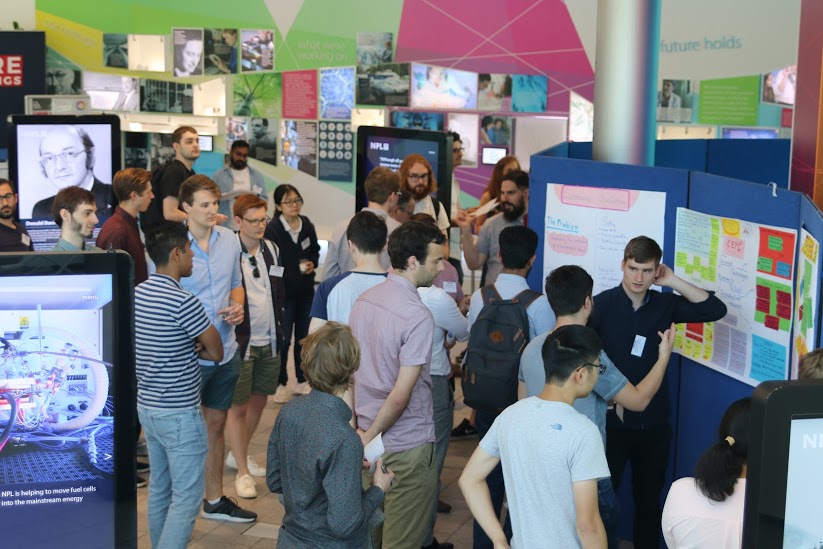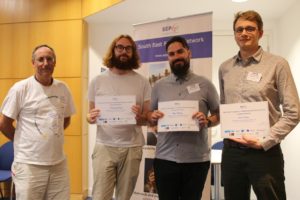24 Jul 2019
Cristobel
Soares

I didn�t really know what to expect from the GRADnet Summer School, especially approaching it as a postdoctoral researcher as opposed to a PhD Student. Since my postdoc contract expires at the end of the year, I saw it as a good opportunity to expand my horizons and gain some inspiration about what I could do next. It�s always been my ambition to find a vocation outside of academia, so the chance to interact with employers from a range of different backgrounds was worth a shot. Moreover, it could be a chance to develop my ideas about how my PhD in Physics and experience in research could be transferred to other fields.
I was a bit worried that the activities might not be pitched appropriately for a professional researcher, but that fear proved to be unfounded. The seminars � two each day � were well built with a wide array of experiences in mind. Seminars which stood out to me were the Intellectual Property workshop run by WP Thompson and a talk on public engagement from the Science & Technology Facilities Council.
Between seminars, I had the chance to attend two employer-led workshops each day, which comprised an hour talk about their work and a group activity. Typically, the group activities were well thought out to bring across a specific point, and as a consequence they were highly engaging. A highlight was a workshop from Ultra Electronics, where we were tasked to design the most useless microwave which still fitted within the design specifications � my team decided that the specified OLED display should be only 1 pixel and communicate through Morse code. But amongst the fun, there was a serious take away � our training as Physicists has given us skills which come in handy in plenty of different contexts. In this environment, our technical Physics knowledge doesn�t count for nearly as much as our agile thinking and teamwork.
On the final day, we split into teams and took part in a �consultancy challenge�, where we tried to solve, in a matter of hours, the kind of problems a consultancy might work on for weeks. My team�s assigned problem was to make a recommendation about where the successor to the Large Hadron Collider should be built � at CERN in Geneva, or in a new site in China? Not only did we have costs and scientific merits to consider, but my team chose to emphasize the possible ethical issues of working with the Chinese government. Time was tight � we had only a few hours to put together a poster presentation and a pitch to sell our solutions. This extremely limited timescale forced us to focus on the principle of being �just good enough� to solve the problem, but no more rigorous. My team even won a prize for our efforts! The whole exercise really emphasized to me the importance of the leadership and time management skills I�ve developed. I left the summer school with renewed self-confidence, fresh ideas for new careers, and quite a few new friends.
Thank you to Dr Steve Chick, Postdoctoral Researcher, University of Surrey for giving his perspective on attending this year's GRADnet Summer School 1-4 July 2019 at the National Physical Laboratory in Teddington, Middlesex.

Rutherford Appleton Laboratory:� Team 3�� Stephen Haywood, RAL, Bradley Garland, Dan Kelsey, University of Sussex and Stephen Chick, University of Surrey.






